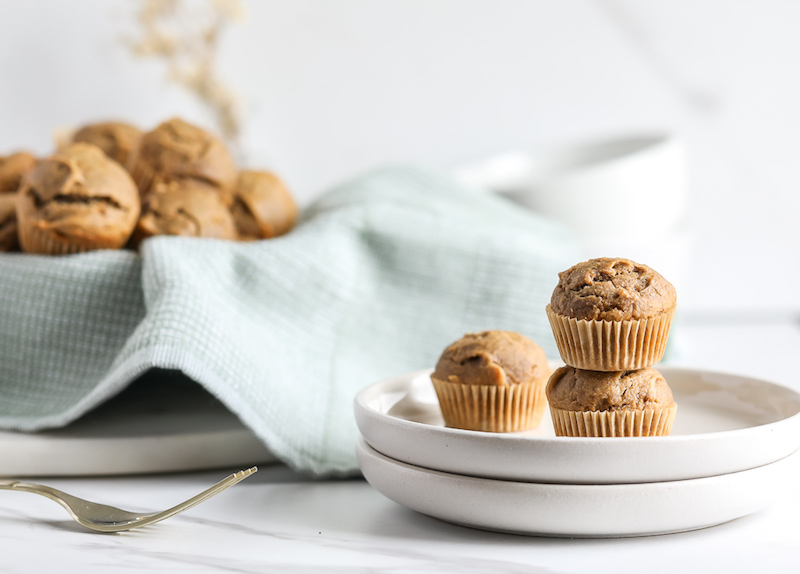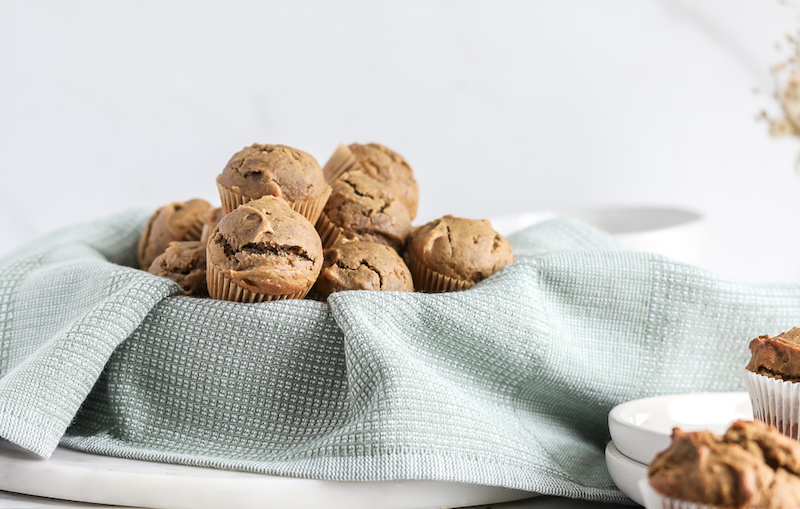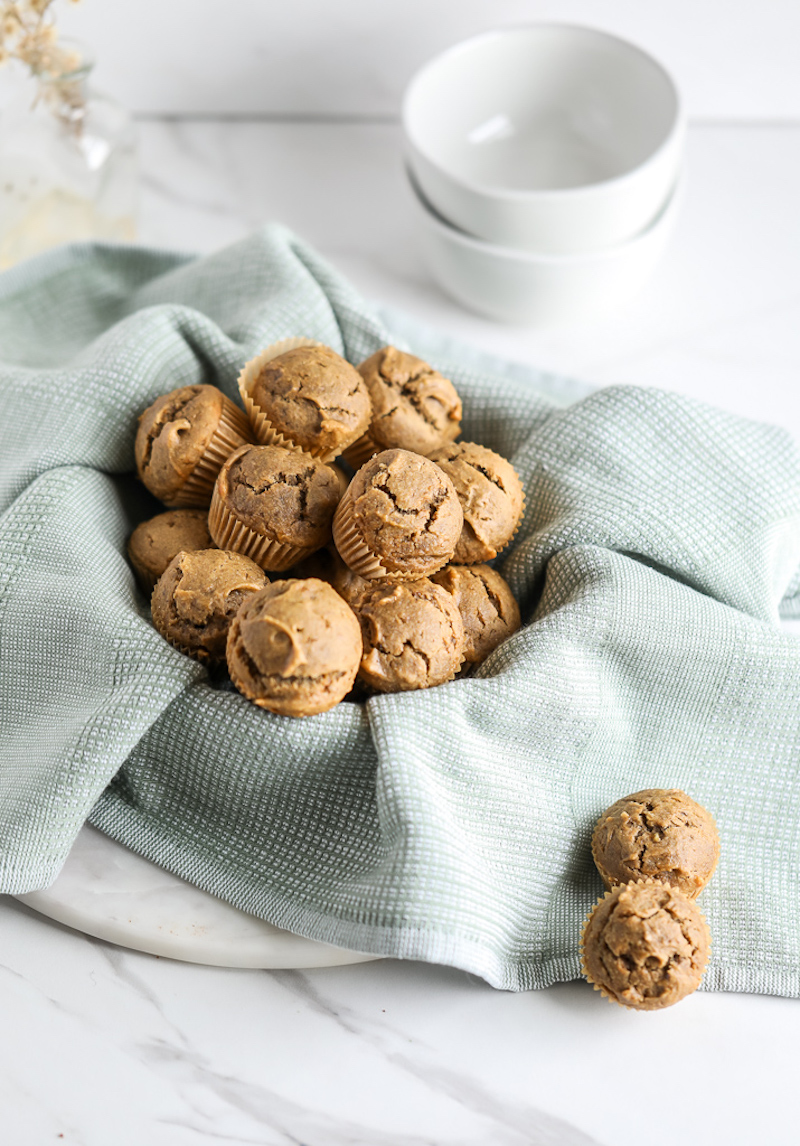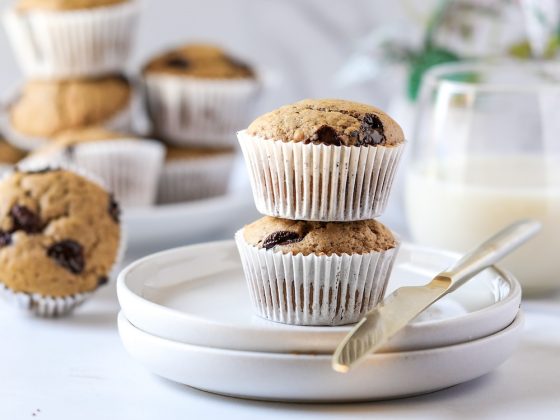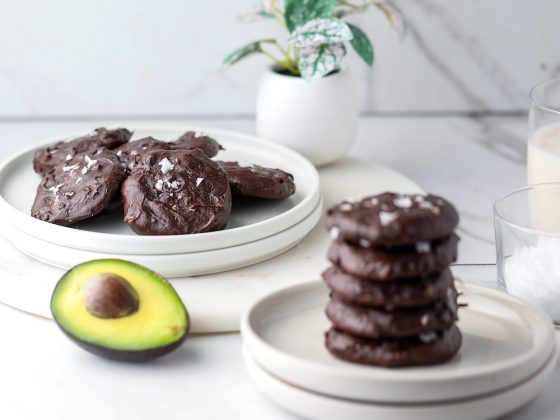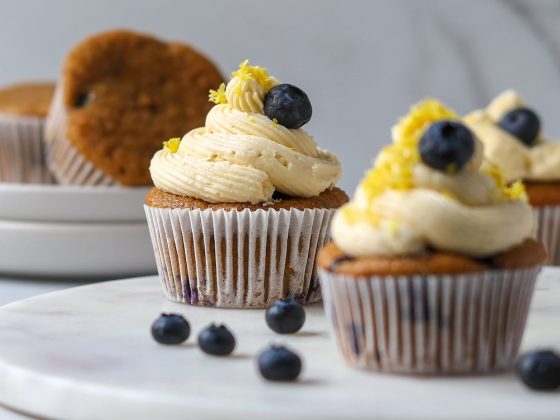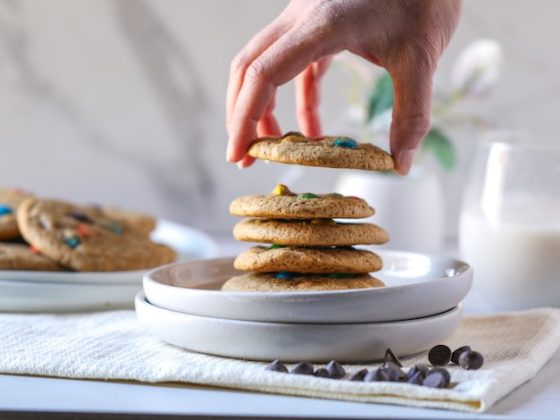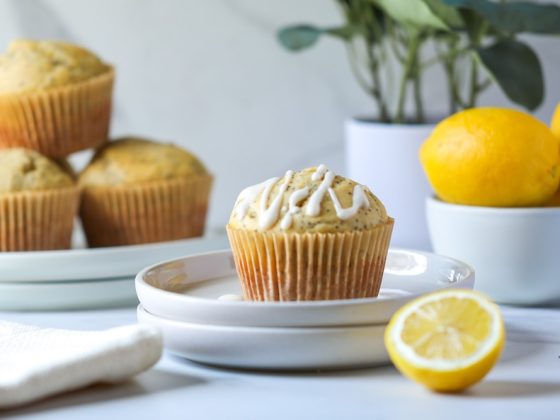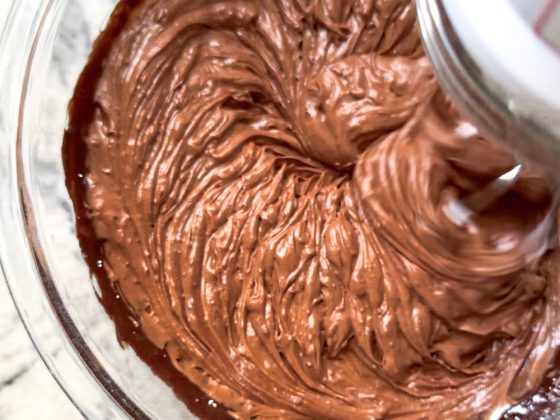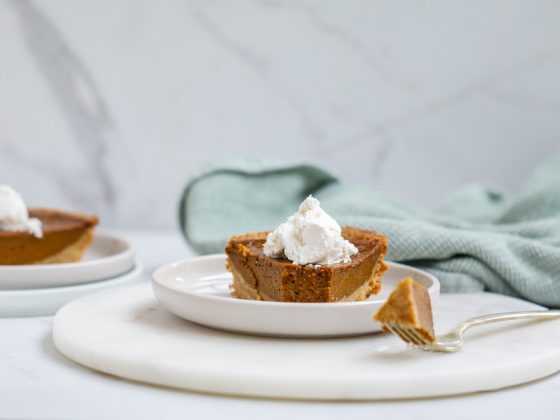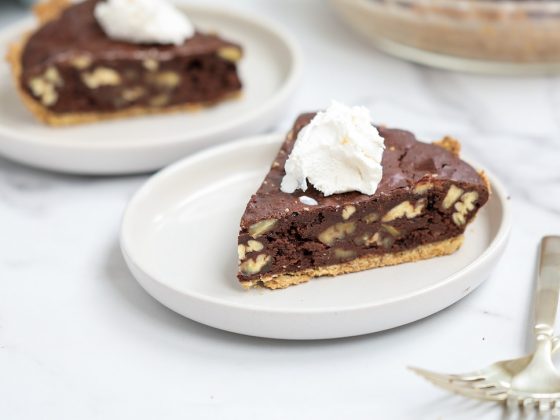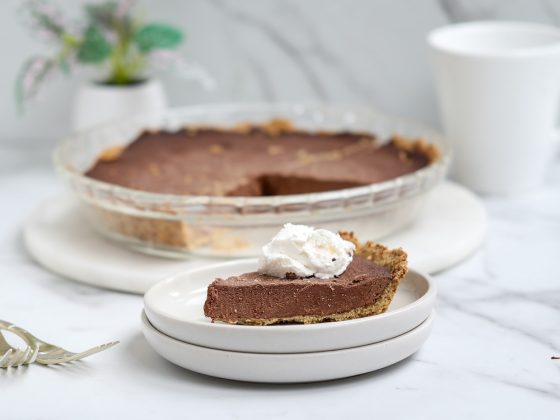Why I made these muffins gluten-free and vegan
About a year ago, I started to notice that my toddler’s picky eating was swinging to an extreme side of the spectrum. When I introduced purees around four or five months old, he would eat anything at the end of a spoon. I would mash banana, avocado, butternut squash, and sweet potato to name a few.
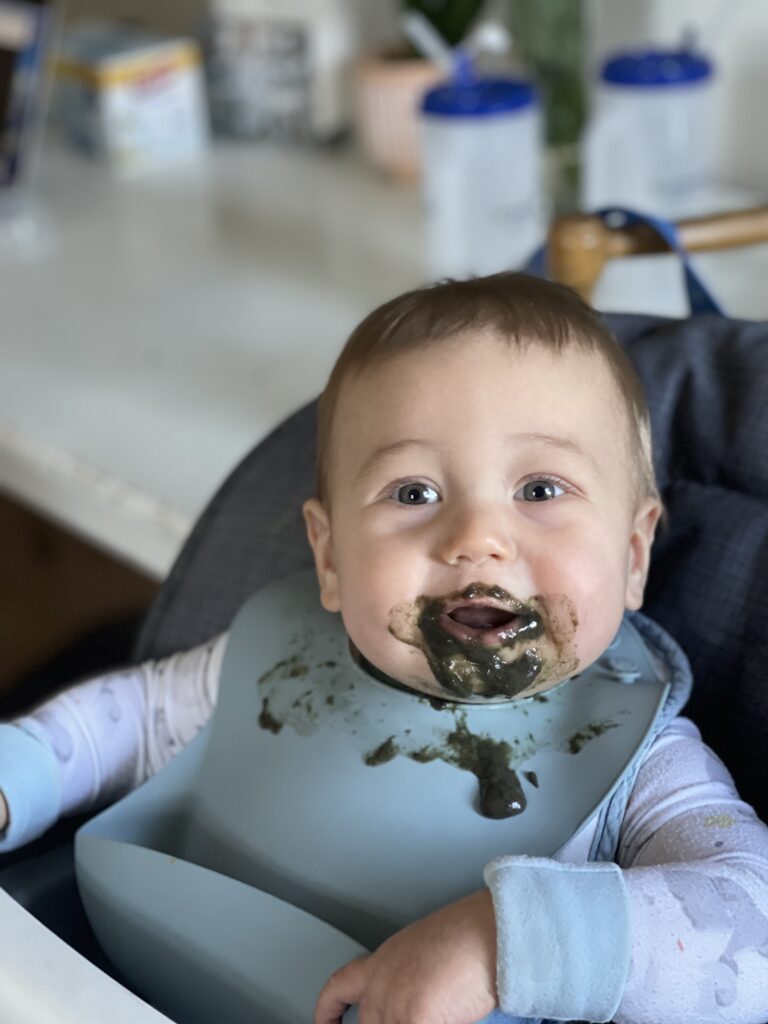
Then as he gained some independence, he would take the spoon right out of my hand and throw it on the floor. This gave me the impression he was ready for more finger foods; but no, he would either refuse to touch certain foods, or throw them on the floor as well.
It came to a point where the majority of his meals were either in smoothie or pouch form, and I knew I needed to get help on the matter. I hired a feeding therapist, who, during our first session, immediately diagnosed him with a posterior tongue tie. The tongue tie was limiting his tongue mobility and ability to swallow, resulting in the picky eating. We think he also had a sensory issue when it came to certain textures and temperatures. He was characterizing certain foods as “do not eat” (mostly colorful foods like fruits and vegetables, since they were more challenging to chew), and other foods as “safe” (dry, brown, primarily refined processed carbs like bread and french fries). As a heath coach, this was difficult for me to digest (pun intended). I obviously care about his nutrition, and while he was getting adequate nutrients from his smoothies and pouches, I wanted more nutritional diversity in his diet.
Additionally, around two years old, we started to notice a speech delay. His comprehension was right on track, but we felt as if he was falling behind on his ability to form words and phrases. All of this to say, I intuitively connected the dots. These hurdles we were facing had to be related. He was also constantly getting colds, and while I chalked it up to preschool, I knew consistently having a cough and runny nose wasn’t normal.
Long story short, after his two-and-a-half year check-up with the pediatrician, and a referral to an ENT doctor, we discovered he does not in fact have a tongue tie, but rather enlarged adenoids. This ailment is similar to enlarged tonsils, but the adenoids are located further in the nasal cavity above the roof of the mouth. While the solution to this problem is a surgical procedure to remove them, I wanted to try other non-invasive methods first. He got prescribed a nasal spray, and I also did my research to see if there were any nutritional remedies as well. At the root of enlarged adenoids is inflammation; I also know dairy is a very mucus-inducing food, so right off the bat, I removed gluten and dairy from his diet. As someone who has been primarily gluten- and dairy-free (I have recently incorporated some forms of dairy back in, however), I believe it is an easy lifestyle to navigate. But for a toddler – it is a whole other animal. I rely on packing his sunflower seed butter sandwiches for school, often order chicken fingers when eating out, and he loves his Siggi’s yogurt pouches for a higher-protein snack. The first day back at school after his diagnosis, I packed his sandwich on gluten-free bread, and he didn’t take one bite. I knew then I had to come up with another option.
Enter: sunflower seed butter banana mini muffins. That might have been a long-winded introduction to this recipe, but I want to share our story in case anyone is in a similar boat. Food intolerances and sensitivities are so common these days, and from my health coaching days, I know many moms can feel overwhelmed when forced to change their child’s diet. But it can be done, it will just take some forethought, planning and preparation.
The great thing about this recipe is that it makes a lot of mini muffins. About thirty-six muffins, which can also be frozen and reheated for later consumption. Given that I pack about three muffins in his lunchbox each day, I will refrigerate about a third to get us through the work week, and freeze the rest. They are vegan muffins, so they can be stored in an air-tight container in the refrigerator for about two weeks, but I have noticed that when baking with banana, muffins tend to spoil faster regardless. I highly recommend freezing most of the muffins and reheating as you are ready to enjoy them.
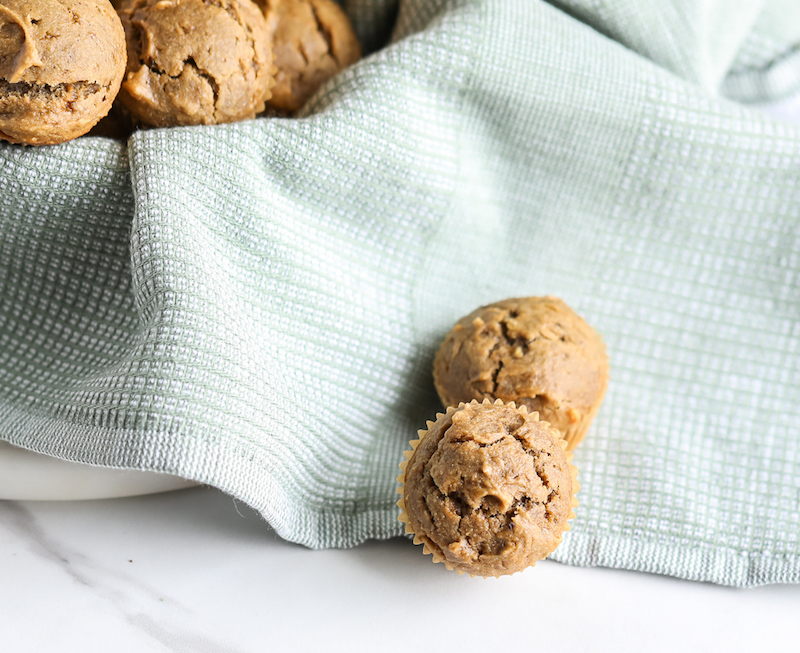
These muffins are also nut-free and safe to take into schools
It was important to me that these muffins also be nut-free. Like many schools, nuts and peanut products are not allowed in his school. Because I wanted an option to pack for his lunchbox, these muffins don’t contain nuts. That meant no nut butter, almond flour or almond milk. This recipe calls for using sunflower seed butter (here is my favorite brand), full-fat coconut milk or oat milk. And if your child can tolerate dairy, regular milk would work too.
Planning and prep
Making sure you have ripe bananas on-hand is really the only thing you need to prepare for. They don’t necessarily need to be banana bread ripeness (i.e. overripe), but very ripe will do (check out this cheat sheet to see the difference). Then the recipe comes together quickly! I love making them as mini muffins for my toddler, but if you are making them for yourself, you can use a regular muffin tin (see note below). I had enough batter left over so I could make a few regular muffins for myself. I have been enjoying one in the afternoon paired with plain greek yogurt. That would make a great breakfast too!
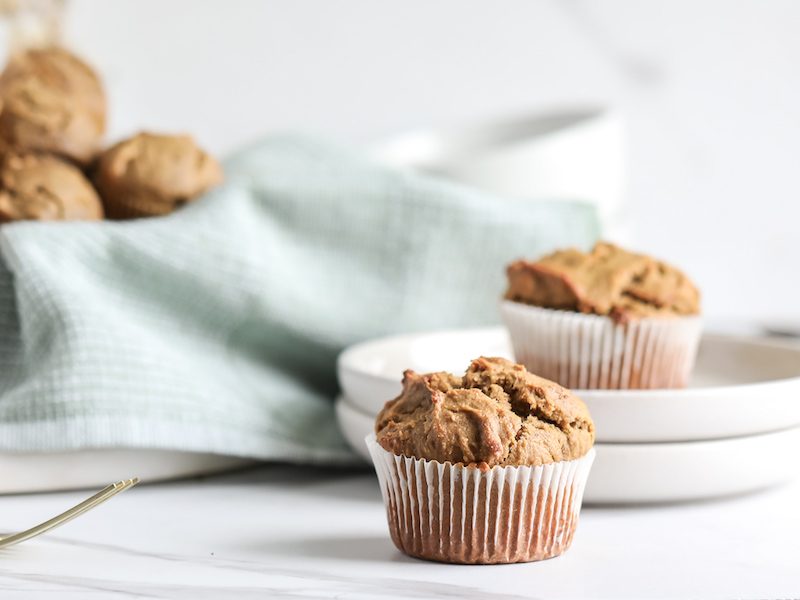
These muffins are soft, hearty, with a nut-buttery taste and texture anyone will love. They are not overly sweet, which is just how I (and my blood sugar) like them. In fact, I used this zucchini banana muffin recipe as a guide, and cut the coconut sugar content by 50%. They are just as delicious!
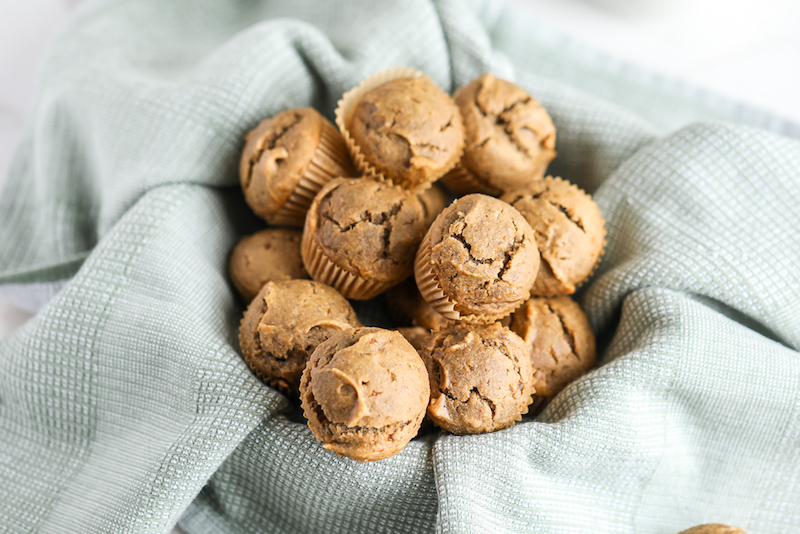
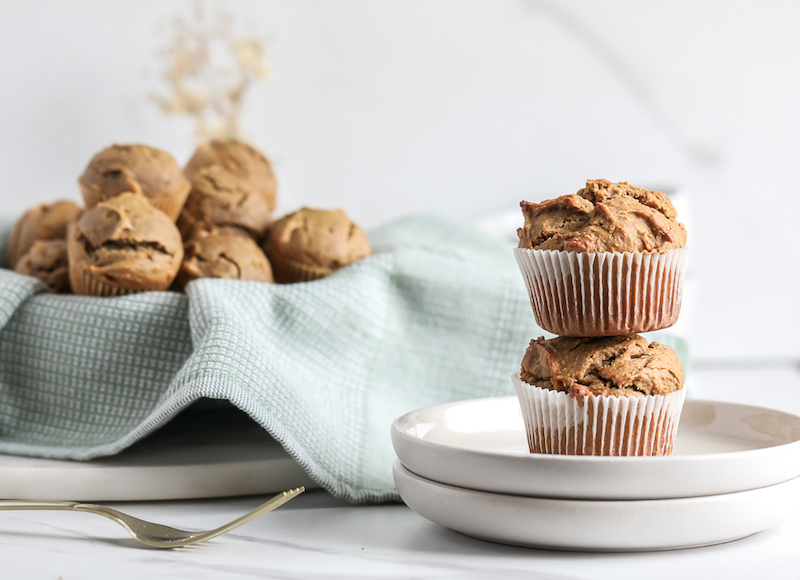
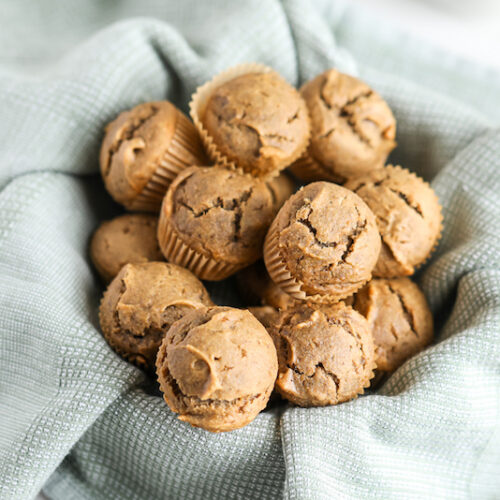
Gluten-Free Vegan Sunbutter Banana Mini Muffins
Equipment
- 1 mini muffin tin you can also use a regular muffin tin; see note
- Mixing bowls
- Hand beater or stand mixer
Ingredients
- ¾ cup full-fat coconut milk or oat milk
- ½ cup mashed banana from about 2 medium ripe bananas
- ½ cup creamy sunflower seed butter
- ¼ cup maple syrup
- 1 teaspoon vanilla extract
- 2 cups gluten-free oat flour
- 1 cup brown rice flour
- ½ cup coconut sugar
- 2 teaspoons baking powder
- 1 teaspoon cinnamon
- ½ teaspoon sea salt
Instructions
- Preheat the oven to 350 degrees F. Line a mini muffin tin with liners.
- In a medium mixing bowl, whisk together the coconut milk or oat milk, mashed banana, sunflower seed butter, maple syrup, and vanilla extract. Whisk until combined and creamy and set aside.
- In another large bowl, or bowl of a stand mixer, combine the gluten-free oat flour, brown rice flour, coconut sugar, baking powder, cinnamon, and sea salt. Stir to combine.
- Pour the wet ingredients into the bowl with the dry mixture. Beat until a muffin batter is formed.
- Transfer the batter to the cups of the muffin tin, filling each one all of the way to the top. Bake 14 to 15 minutes until a toothpick inserted in the center comes out clean. Allow the muffins to cool in the muffin tin for about 10 minutes, before transferring them to a wire rack to cool completely.
Notes
